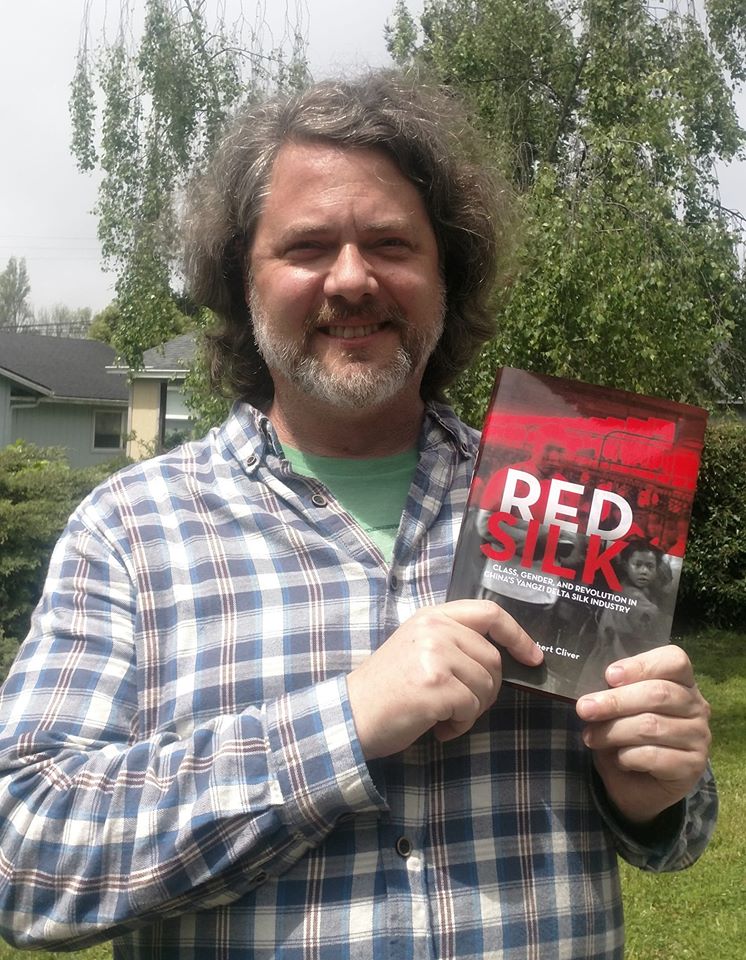
Robert Cliver is Professor of History at Humboldt State University (California) and has been a member of AAS for almost 16 years, since October 2004.
What is your discipline and country (or countries) of interest?
I am a historian of modern China and Russia, with an interest in modern and pre-modern East Asian and World history.
Why did you join AAS and why would you recommend AAS to your colleagues?
I joined AAS to participate in the conferences the association organizes. These have been some of the best moments in my career. There are many other great perks of membership including excellent publications, opportunities for networking, and the chance to participate in meaningful scholarly and political actions.
How did you first become involved in the field of Asian Studies?
As a boy growing up in a small town in Massachusetts I developed a fascination for East Asia—ninjas, samurai, Mongols—in a sort of naïve Orientalism. In high school I read Karl Marx for the first time and became interested in socialism, communism, and other alternatives to capitalism. When I went to college I was not sure what discipline I wanted to pursue. I thought I could be an astronomer, but as the only freshman and the only non-major in the astrophysics course, I only passed (with a B-) because I wrote a history paper. I signed up for the history major and started learning Chinese. It has been a great experience ever since. I have developed a passion for historical studies and all things Chinese. I went to China for the first time as a college student in 1989, a budding historian of the Chinese revolution looking for socialist China at the end of socialism. Over the past 30 years I have outgrown my naiveté, but not my passion for history, politics, and Asian studies.
What do you enjoy most or what were your most rewarding experiences involving your work in Asian Studies?
My most rewarding experiences as an Asian studies scholar have been getting to know and learning from colleagues all over the world. It is a great privilege to be able to meet with such excellent scholars from diverse disciplines. I have made so many friends in China, Korea, Japan, Taiwan, and elsewhere and have visited so many interesting places. I hope to continue learning, traveling, and making friends in East Asia to the end of my days.
Tell us about your current or past research.
My recent book, Red Silk: Class, Gender, and Revolution in China’s Yangzi Delta Silk Industry (Cambridge, MA: Harvard University Asia Center, 2020), represents a lifetime of studying the Chinese revolution. Since I first began paid employment at the age of 10, I have been interested in labor, capitalism, and all forms of resistance to exploitation and oppression, especially Marxism. I began my dissertation with questions about how the Chinese Communist Party’s policies served to liberate Chinese workers from capitalist and imperialist exploitation. I gradually learned that most workers in China, especially women workers, did not enjoy the full benefits of socialist employment. Thus, the book is as much gender history as labor history.
Researching my dissertation, I was fortunate to have the opportunity live in China, to build connections with scholars there, and to make use of archival materials. Those sources, and the excellent advice and support of my colleagues around the world, have, I think, make Red Silk a worthy contribution to the study of workers in modern China. Since then, however, the Xi Jinping regime has greatly restricted scholars’ access to archival documents. It is not impossible to conduct research in China now, but it is much more difficult and, because of my advocacy for China’s Uighurs and Marxist students targeted by the regime, I may no longer be welcome there. (I last went there in 2015.) Because of this, I have turned my attention to the histories of Chinese people in my home in Northern California, especially the events surrounding the expulsion of the Chinese residents of Eureka, CA, in February 1885.
What advice or recommendation do you have for students interested in a career in Asian Studies?
Don’t go into academics and don’t bother getting a Ph.D. Find what it is that you love about Asia and what you love to do, get a masters degree, and get a job that lets you do what you love. If you don’t love teaching or being unemployed, don’t go into academia. There aren’t any jobs and it’s not worth it. If you want to teach, you can always do that with an MA and get a Ph.D. later if need be.
Outside of Asian Studies, tell us some interesting facts about yourself (your interests, hobbies, skills, etc).
What I really enjoy doing with my time is playing Dungeons and Dragons with my friends (and, no, not Oriental Adventures). When I can’t do that in person or online, I make things to play tabletop role-playing games with, including miniature figurines (I got a 3D resin printer in May) and tiny landscapes including trees, coral reefs, tunnels, swamps, ruins, a shipwreck, and a mountaintop that covers the whole table! I love working with my hands and making things. It is a wonderful distraction from the woes of the world and helps keep me sane.

